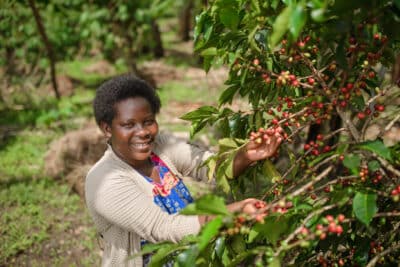News
12 February 2016
Climate-smart agriculture: building resilience to climate change

‘When the music changes, so do the dance steps’ – African proverb
The current El Niño weather phenomenon has brought devastating drought to parts of Ethiopia, showing the urgent need for farming to adapt to new weather patterns.
With global populations expanding rapidly, it has been estimated that agricultural production will have to rise by as much as 70% by 2050 to meet demand. But it’s not just populations that are increasing – the frequency of extreme weather patterns is on the rise too. If Africa is to grow enough food to feed itself it’s vital that farming adapts to a changing climate.
Farm Africa works with five other organisations in Ethiopia to test new approaches that have the potential to improve yields, conserve resources, and help farmers build resilience against extreme weather patterns.
We’re not using one-size-fits-all techniques, but are instead developing tailor-made solutions appropriate to local farming conditions.
Small changes to traditional farming methods, such as the use of drought-tolerant seeds, or the practice of intercropping, where two crops with different resource needs are planted in close proximity, can lessen the impact on farmers’ yields when climate shocks hit. And by focusing on the use of energy-saving technologies and planting trees, emissions can be lowered and environmental damage kept to a minimum.
Dr James Mwololo, Head of Agriculture at Farm Africa, (pictured above) has recently conducted a two-day training course for our field staff in Ethiopia on how to engage disadvantaged farmers in putting climate-smart agriculture (CSA) into practice. Dr Mwololo commented:
“Recognising that food security is intertwined with climate change, Farm Africa works with local farmers to test best-bet agricultural technologies and practices in terms of their potential to reduce their sensitivity to climate shocks and trends. Our project aims to boost farmers’ ability to adapt to climate change, build resilience to climate shocks and where possible, reduce greenhouse gas emissions to ensure solutions are sustainable.”




